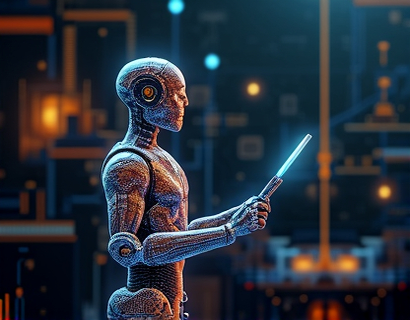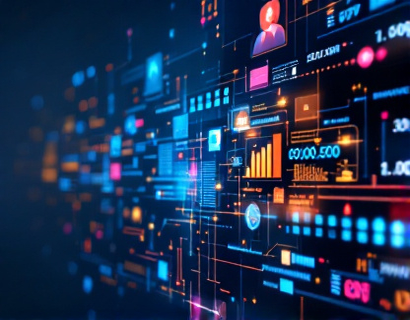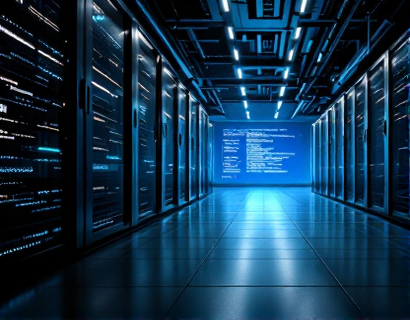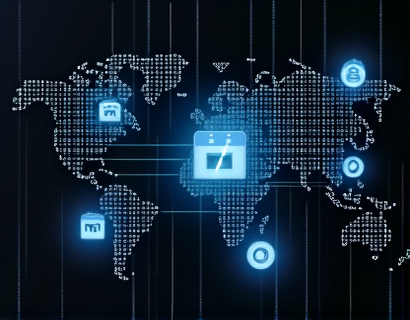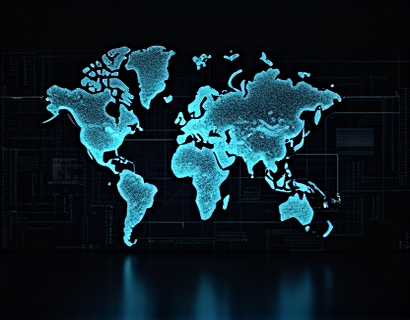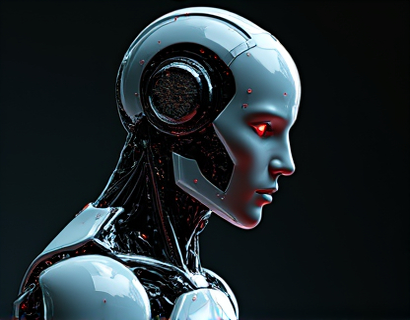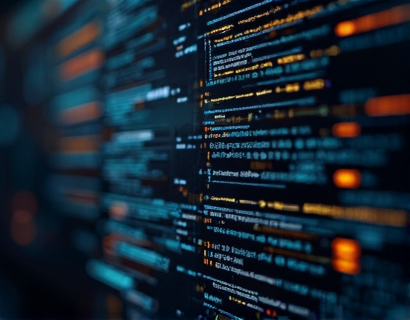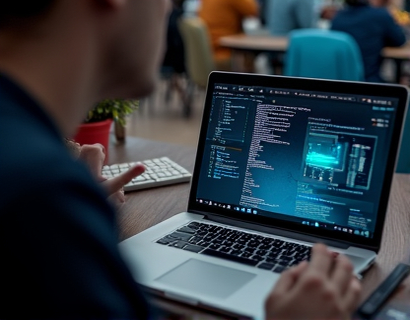Decentralized Productivity 2025: Harnessing AI and Crypto for Business Transformation
The landscape of business productivity is undergoing a profound transformation, driven by the convergence of artificial intelligence and cryptocurrency technologies. This shift towards decentralized solutions is not just a trend but a fundamental change in how businesses operate, connect, and innovate. In 2025, tech leaders and early adopters have the opportunity to revolutionize their operations by embracing a groundbreaking platform that merges AI and cryptocurrency, offering advanced tools to enhance productivity and connectivity.
Decentralized productivity platforms leverage blockchain technology to create secure, transparent, and efficient systems. These platforms eliminate the need for intermediaries, reducing costs and increasing trust among participants. By integrating AI, these systems can automate complex tasks, provide insights through data analysis, and adapt to user needs in real-time. This combination opens up new possibilities for businesses looking to stay competitive in a rapidly evolving digital landscape.
The core advantage of decentralized productivity solutions lies in their ability to foster a more collaborative and resilient ecosystem. Traditional centralized systems are vulnerable to single points of failure and censorship, whereas decentralized platforms distribute control and data across a network of nodes. This distribution ensures that the system remains operational even if some nodes fail, enhancing reliability and security.
One of the key applications of AI in decentralized productivity is the automation of routine tasks. AI algorithms can process and analyze vast amounts of data, identify patterns, and make decisions with minimal human intervention. For instance, smart contracts on blockchain can execute predefined actions automatically when certain conditions are met, streamlining processes and reducing the risk of errors. This automation not only saves time but also allows employees to focus on higher-value tasks that require human creativity and critical thinking.
Another significant benefit is the enhancement of connectivity and collaboration. Decentralized platforms enable seamless communication and data sharing among team members, partners, and clients, regardless of their geographical location. Blockchain-based identity verification and access control ensure that only authorized users can access sensitive information, maintaining data integrity and privacy. AI-driven tools can further enhance collaboration by providing personalized recommendations, predictive analytics, and real-time insights to support informed decision-making.
The integration of AI and cryptocurrency also opens new avenues for incentivization and reward systems. Traditional business models often rely on monetary compensation, but decentralized platforms can introduce token-based incentives that align the interests of various stakeholders. For example, developers, content creators, and other contributors can be rewarded with tokens for their contributions, creating a more equitable and motivating environment. These tokens can also serve as a form of digital currency within the platform, facilitating transactions and fostering a vibrant community.
For businesses looking to adopt these innovative solutions, the first step is to understand the underlying technologies. Blockchain provides a secure and transparent ledger for transactions and data storage, while AI offers powerful tools for automation, analysis, and decision-making. By combining these technologies, businesses can build robust, scalable, and adaptive systems that drive growth and efficiency.
One of the most compelling use cases of decentralized productivity platforms is in the realm of supply chain management. Traditional supply chains are often fragmented and lack transparency, leading to inefficiencies and vulnerabilities. A decentralized platform can create an immutable record of every transaction and movement within the supply chain, from raw materials to the end product. AI can analyze this data to optimize logistics, predict demand, and identify potential bottlenecks, ensuring a smoother and more reliable supply chain.
In the context of human resources, decentralized platforms can revolutionize talent acquisition and management. AI-powered tools can screen resumes, conduct initial interviews, and match candidates with job openings based on skills and fit. Blockchain can securely store and verify credentials, reducing the risk of fraud and streamlining the hiring process. Token-based incentive systems can motivate employees by offering rewards for performance, loyalty, and innovation, creating a more engaged and productive workforce.
The financial sector is another area where decentralized productivity solutions can make a significant impact. Smart contracts can automate complex financial transactions, such as payments, settlements, and compliance checks, reducing the need for intermediaries and lowering transaction costs. AI can provide advanced risk assessment and fraud detection, enhancing the security and reliability of financial operations. Decentralized finance (DeFi) platforms already offer a range of services, from lending and borrowing to trading and insurance, all built on blockchain technology.
For tech leaders and early adopters, the transition to decentralized productivity platforms requires a strategic approach. It starts with identifying the specific pain points and opportunities within their business operations. Conducting a thorough analysis of current processes and workflows can help pinpoint areas where AI and blockchain can add the most value. Collaborating with technology partners and experts in AI and blockchain can provide the necessary guidance and support during the implementation phase.
Education and training are crucial components of this transition. Employees need to understand the benefits and functionalities of decentralized platforms to fully leverage their potential. Providing comprehensive training programs and resources can help bridge the knowledge gap and ensure a smooth adoption process. Encouraging a culture of innovation and continuous learning will also foster a more adaptable and forward-thinking organization.
As the adoption of AI and cryptocurrency in productivity solutions gains momentum, the market is seeing the emergence of innovative platforms and tools. These platforms are designed to be user-friendly and accessible, making advanced technologies available to a broader audience. For instance, some platforms offer intuitive dashboards and interfaces that allow users to manage their tasks, collaborate with team members, and monitor performance metrics without requiring deep technical knowledge.
The future of decentralized productivity is bright, with ongoing advancements in AI and blockchain technology promising even more powerful and versatile tools. The convergence of these technologies is not just about efficiency and cost savings; it's about creating a more inclusive, transparent, and resilient business ecosystem. As more companies recognize the potential of decentralized solutions, the demand for these platforms is expected to grow, driving further innovation and adoption.
In conclusion, the integration of AI and cryptocurrency in productivity solutions represents a paradigm shift in how businesses operate. By embracing decentralized platforms, companies can enhance their productivity, connectivity, and innovation capabilities. Tech leaders and early adopters have the opportunity to be at the forefront of this transformation, redefining the future of work and setting new standards for excellence in the digital age.







